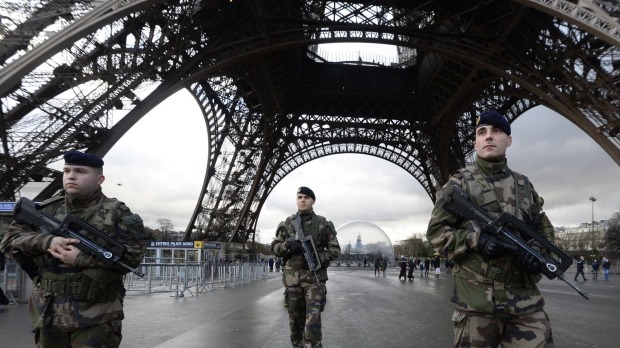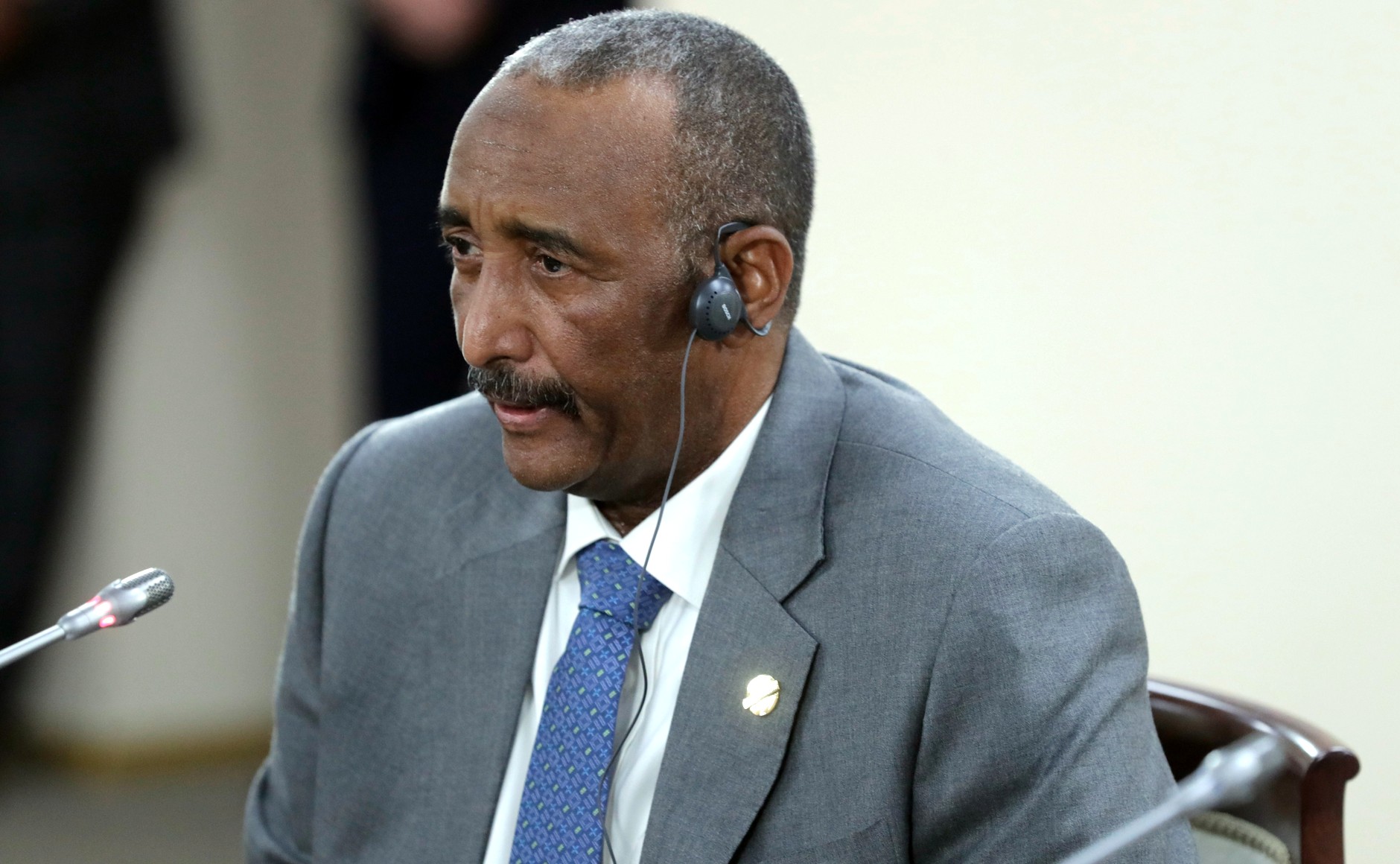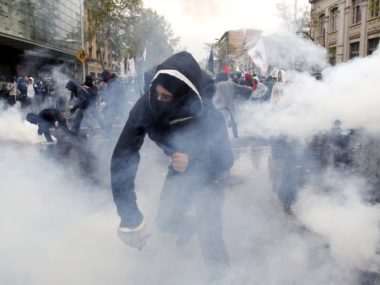Guest post by Chiara Ruffa and Yagil Levy
France is in an uproar following an open letter republished in the right-wing magazine Valeurs Actuelles signed by 1,000 retired French servicepeople, including 18 active-duty servicemen. In the letter, the officers warned of an impending “civil war” and “intervention by our comrades on active service” if President Emmanuel Macron fails to halt the “disintegration” of France.
Marine Le Pen, head of extreme right-wing party Front National, welcomed the statement, saying “I subscribe to your analysis and share your preoccupation,” thereby politicizing the military. Both Minister of Defense Florence Parly and Joint Chief of Staff responded critically, reminding the public of the political neutrality of the military. More recently, the Joint Chief of Staff announced that he would step down to avoid risks of politicization.
French civil-military relations are in a phase of great flux. In democracies, militaries traditionally accept subordination to elected politicians and limits on their autonomy in exchange for resources, ranging from material resources to legitimacy and symbolic resources, which are mobilized by civilian state institutions. The perception among the military that this trade-off is unbalanced is triggering the military’s multiple forms of resistance to political authority.
Traditionally, French civil-military relations have been characterized by strong civilian control. Since 1962, the military has been careful to stay away from the public space with retired militaries rarely if ever playing an active role in politics. Things began to slowly change beginning in the late 1990s, especially with the French engagement in Afghanistan and the war against terrorism in France. The French military slowly became more visible, more popular, and its retired officers became more vocal.
When Macron was elected in 2017, the relationship between the military and the administration was further challenged. The first serious rupture between the president and the officer corps occurred when the president and the military could not agree on a satisfactory defense budget. This lead to the resignation of Chief of the Defense Staff, Pierre De Villiers in July 2017, and a drop in the president’s popularity by 10 percent. The armed forces, it turned out, had widespread support among society, and the president’s popularity partly depended on it.
The second area of rupture concerned the military’s involvement in domestic policing. Macron, like former president Hollande, has tasked the military with domestic policing roles, and, more recently, with the COVID-19 response. Domestic policing has made the military more visible and popular among the public, but the French military remains skeptical of its expanded role and the number of servicepeople deployed on domestic soil.
The French military’s subtle resistance to being politicized mirrors broader global trends (see here and here). An analogous event was the US “revolt of the generals” in 2006. Several recently retired generals publicly criticized Secretary of Defense Donald Rumsfeld for his management of the Iraq war, especially the war-planning processes. To a large extent, this was a form of a military resistance to elected politicians, as retired generals served as a mouthpiece for those still on active duty, as one of them admitted. According to Michael Desch, a prominent scholar of civil-military relations, this revolt stemmed from Rumsfeld’s violation of the Huntingtonian principle according to which “civilian leaders cede substantial autonomy to military professionals in the tactical and operational realms in return for complete and unquestioning military subordination to civilian control of politics and grand strategy.” In our terms, it was a case of unbalanced exchange leading to resistance.
This pattern repeated itself in 2020 when retired generals voiced dissent over President Trump’s intention to use troops in response to protests against police brutality. As Avant and Neu imply, this is also a case of unbalanced exchange as the military resisted attempts to politicize their ranks. Both cases reveal the importance of depoliticization of the military. As Risa Brooks recently wrote about the US we just “wish that former military leaders weren’t the most influential voices in our nation’s politics today.” Neither in France nor elsewhere.
Chiara Ruffa is academy fellow at the Department of Peace and Conflict Research at Uppsala University and associate professor in War Studies at the Swedish Defense University. Yagil Levy is a professor of political sociology and public policy at the Open University of Israel.







